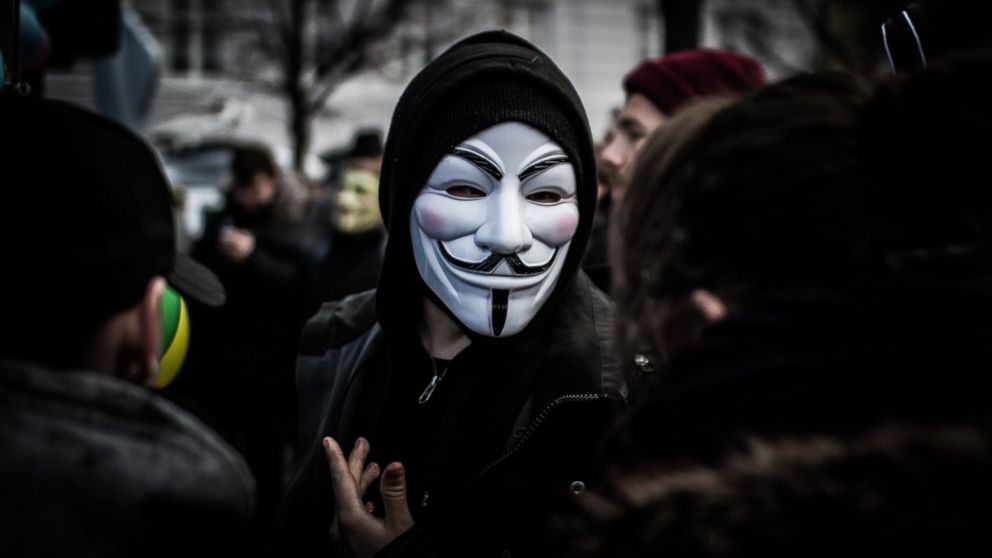What to Know About the Worldwide Hacker Group ‘Anonymous’
The influence of these "hacktivists" is far-reaching -- and destructive.

— -- The collective “Anonymous” claimed on Thursday that it had hacked GOP presidential candidate Donald Trump, releasing what it alleged was his Social Security number, cell phone number and other personal information.
The decentralized group of international activist hackers has been linked to numerous high-profile incidents over the years, including Internet attacks on governments, major corporations, financial institutions and religious groups.
Anonymous gained national attention in 2008, when the group hacked the Church of Scientology Web site with a distributed denial-of-service attack, in which multiple computers bombard the victim's server with requests in order to overwhelm and shut it down.
Although many supporters have praised Anonymous, members of the hacking collective have faced prosecution for their actions. FBI arrests have led to charges of cyber-stalking, computer hacking and fraud.
Here are three things to know about these "hacktivists:"
Who is Anonymous?
It's an amorphous group of people that can include anyone who wants to use the brand to put forth their cause, according to Internet activist Gregg Housh, formerly with Anonymous.
Housh says that Anonymous was conceived to be used and adopted by anyone.
"The act of saying you are, means you are," he said. "That’s how little control anyone has over the brand."
There’s also the real-world manifestation of the Anonymous movement, which has been represented at rallies around the world by protesters wearing the now-iconic Guy Fawkes masks obscuring their identity.
People associating themselves with Anonymous run the gamut. Members include women, men, Democrats, Republicans, the young, the old, and people of different races and nationalities, according to Housh.
What does the group want?
While there are no specific goals, there is an overarching desire to combat censorship, promote freedom of speech, and counter government control that sparks people in the so-called collective into action, according to Housh.
Housh said that perhaps the only guiding principle is "anti-oppression."
Since there are no membership lists, newsletters or committees, people organize by two primary pathways: either though previous connections or anyone with an idea can call on others to go into a chat group and discuss the idea further, according to Housh.
“Depending on what you have suggested, the people are going to rally around you or not," he said.
That also means that not everyone associated with the group agrees on every action taken under its name.
"I don’t think you’ll be able to find an Anon that won’t be upset about at least one op [operation]," he said.
How does it carry out hacks?
Anonymous is known to vigorously go after its targets. It has been associated with crashing Web servers, website defacement and leaking hacked private information.
For example, the group allegedly targeted computer security firm HPGary and its CEO, claiming that the company was going to disclose details of Anonymous members to the FBI, ABC News reported in 2011.
At the time, Anonymous allegedly hacked the firms website, posted a message on its website, downloaded thousands of emails and took control of the CEO's Twitter account.
In 2013, Anonymous gained notoriety when then 26-year-old programmer Deric Lostutter worked to expose the cover-up in the Steubenville rape case. His initial video message calling for action, spurred Web site take-overs and uncovering of personal emails reported Rolling Stone in a lengthy profile of the incident.
The group also uses it tech-savvy abilities to promote causes it supports.
Anonymous worked with other groups to assist the Arab Spring uprising, specifically in Tunisia and Egypt, to keep access to the Internet open for organizers on the ground, according to Housh.
"Just keeping the lights on is really important in those areas," he said.
-Candace Smith contributed reporting.




